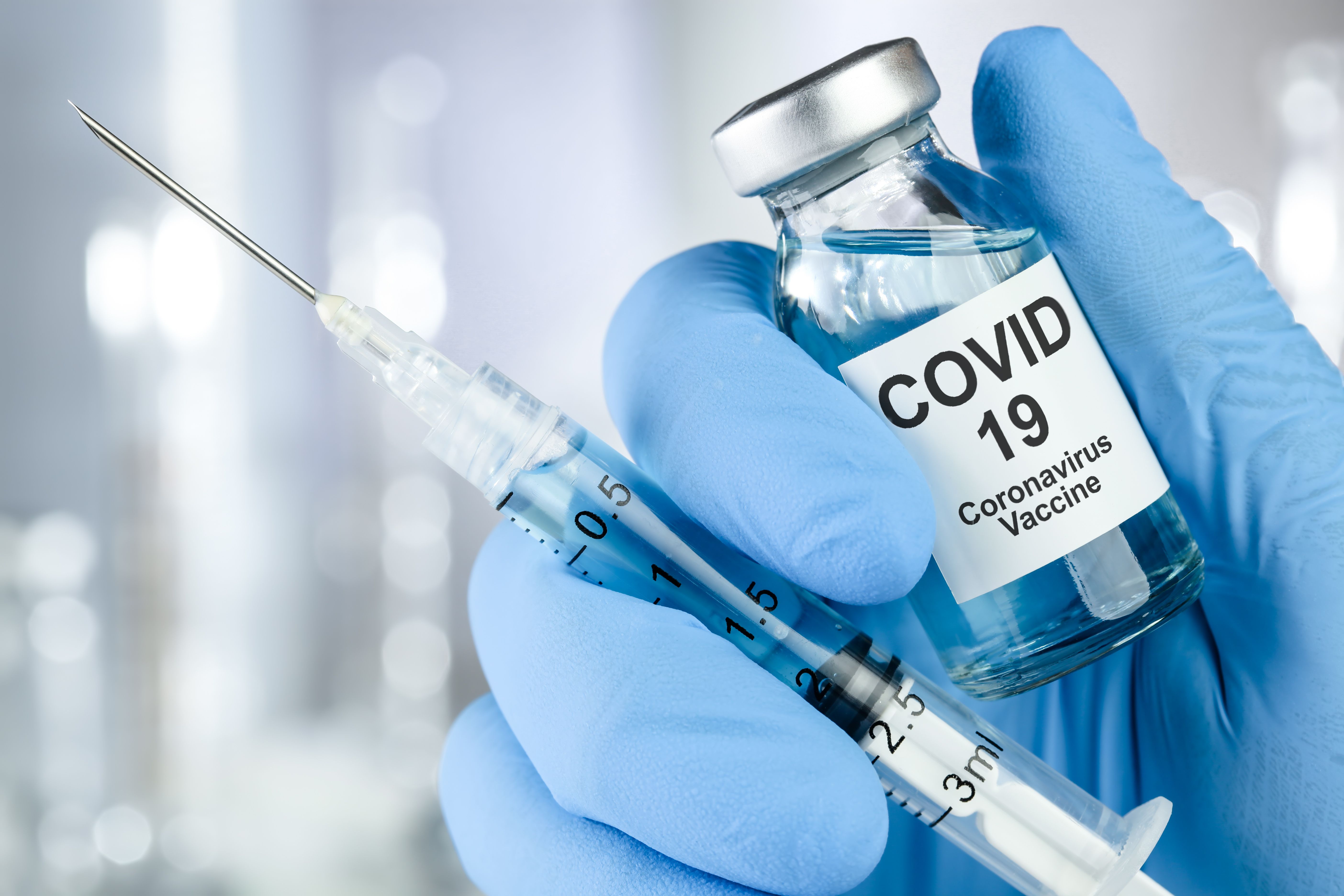- Center on Health Equity & Access
- Clinical
- Health Care Cost
- Health Care Delivery
- Insurance
- Policy
- Technology
- Value-Based Care
Evaluating COVID-19 Vaccination Safety in Multiple Sclerosis
Researchers review the safety, efficacy, and considerations for COVID-19 vaccination in multiple sclerosis patients, especially those on disease-modifying therapies, affirming the vaccine's overall benefit in reducing severe COVID-19 risks without significantly increasing MS relapse rates.
A recent comprehensive review published in Health Science Reports provides an in-depth analysis of the efficacy, safety, and complications associated with COVID-19 vaccines in patients with multiple sclerosis (MS).1 The study, conducted by researchers from the University of Miami and other academic institutions, addresses common issues clinicians face when managing vaccination in MS patients, including efficacy, side effects, and association with relapse following vaccination.
Image credit: Leigh Prather - stock.adobe.com

The review was based on an extensive database search that included PubMed/Medline, Embase, Scopus, and the Web of Science, covering literature from January 2020 to July 2024 and provides a detailed analysis of various COVID-19 vaccines, focusing primarily on mRNA-based vaccines, the BNT162b2 vaccine (Pfizer-BioNTech), the mRNA-1273 vaccine (Moderna), and the viral vector vaccine AZD 1222 (AstraZeneca).
A significant finding of the study relates to the effect of DMTs on vaccine response. The authors note that "a notable reduction in the humoral response following COVID-19 vaccination" is observed in patients receiving anti-CD20 and sphingosine-1-phosphate (S1P) receptor modulator drugs. The impact of DMTs on vaccine efficacy extends beyond antibody production. While anti-CD20 therapies reduce the humoral response, studies have shown that some T-cell responses remain intact, which may offer partial protection. A study cited in the review found "a T‐cell response was detected after the third vaccine dose in some patients who did not achieve a humoral response," highlighting the importance of booster doses for vulnerable populations.2
Researchers found that clinical outcomes for MS patients with COVID-19 vary depending on their treatment. Notably, patients on anti-CD20 therapies or S1P receptor modulators have faced more severe COVID-19 outcomes. A referenced study by Sormani et al. noted that MS patients on anti-CD20 therapies exhibited "higher incidences of pneumonia, hospitalization, and severe complications compared to those on other DMTs."3 Another study by Feuth et al. corroborated these findings, showing that anti-CD20-treated patients experienced prolonged viral pneumonia and increased mortality.4
Despite these complexities, the review emphasizes that receiving any COVID-19 vaccine is "a safer and more reliable approach to building immunity compared to becoming infected with the virus." However, the study recommends specific timing adjustments for certain patients to receive optimal vaccine efficacy and safety. The authors recommend delaying COVID-19 vaccination for at least 12 weeks after the last dose of anti-CD20 therapies, allowing time for a more robust immune response to develop.5 Conversely, patients on interferons, teriflunomide, ofatumumab, natalizumab, dimethyl fumarate, glatiramer acetate, and S1P drugs do not require delayed vaccination.6,7 For cladribine, a delay of at least 4 weeks after the last dose is suggested to optimize the immune response, while in cases of lymphopenia, the delay should continue until lymphocyte counts recover.7
In addition, live or live-attenuated vaccines are not recommended for patients with MS who have recently taken steroids or are on certain disease-modifying therapies (DMTs), according to the National MS Society. Patients experiencing a relapse should delay vaccination until symptoms improve. Although some patients may experience an MS relapse after COVID-19 vaccination, previous research by Achiron et al. showed that relapse rates after the first and second COVID-19 doses (2.1% and 1.6%, respectively) were similar to those in unvaccinated patients with MS, indicating that vaccination does not significantly increase relapse risk.8
Side effects of COVID-19 vaccines in MS patients are similar to those in the general population, typically including mild reactions like injection site pain, fatigue, and headache. Rarely, severe side effects have been documented in the viral vector vaccine AZD 1222 (AstraZeneca), such as deep vein thrombosis (DVT), myocarditis, pericarditis, and inflammatory neurological conditions like Guillain-Barré syndrome.9
References
- Mahmoudi F, Mirmosayyeb O, Shaabani E, Ghaffary EM, Nelson F. COVID-19 vaccination in patients with multiple sclerosis: what you need to know - a review. Health Sci Rep. 2024;7(10). doi:10.1002/hsr2.70119
- Nishikubo M, Shimomura Y, Yamamoto R, et al. Humoral and cellular responses after COVID-19 booster vaccination in patients recently treated with anti-CD20 antibodies. Blood Cancer J. 2023;13(1):17. doi:10.1038/s41408-023-00792-z
- Sormani MP, De Rossi N, Schiavetti I, et al. Disease-modifying therapies and coronavirus disease 2019 severity in multiple sclerosis. Ann Neurol. 2021;89(4):780-789. doi:10.1002/ana.26028
- Feuth E, Nieminen V, Palomäki A, et al. Prolonged viral pneumonia and high mortality in COVID-19 patients on anti-CD20 monoclonal antibody therapy. Eur J Clin Microbiol Infect Dis. 2024;43(4):723-734. doi:10.1007/s10096-024-04776-0
- Pugliatti M, Berger T, Hartung HP, Oreja-Guevara C, Bar-Or A. Multiple sclerosis in the era of COVID-19: disease course, DMTs and SARS-CoV2 vaccinations. Curr Opin Neurol. 2022;35(3):319-327. doi:10.1097/WCO.0000000000001066
- Gold R, Fätkenheuer G, Hartung HP, et al. Vaccination in multiple sclerosis patients treated with highly effective disease-modifying drugs: an overview with consideration of cladribine tablets. Ther Adv Neurol Disord. 2021;14:175628642110195. doi:10.1177/17562864211019598
- Centonze D, Rocca MA, Gasperini C, et al. Disease-modifying therapies and SARS-CoV-2 vaccination in multiple sclerosis: an expert consensus. J Neurol. 2021;268(11):3961-3968. doi:10.1007/s00415-021-10545-2
- Achiron A, Dolev M, Menascu S, et al. COVID-19 vaccination in patients with multiple sclerosis: what we have learnt by February 2021. Mult Scler J. 2021;27(6):864-870. doi:10.1177/13524585211003476
- See I, Su JR, Lale A, et al. US case reports of cerebral venous sinus thrombosis with thrombocytopenia after Ad26.COV2.S vaccination, March 2 to April 21, 2021. JAMA. 2021;325(24):2448-2456. doi:10.1001/jama.2021.7517
New Protocol to Study Brain Stimulation With Virtual Reality in MS
December 11th 2025Investigators will test whether adding anodal transcranial direct current stimulation to exergame-based rehabilitation improves short- and long-term cognitive outcomes in 80 adults with multiple sclerosis.
Read More
